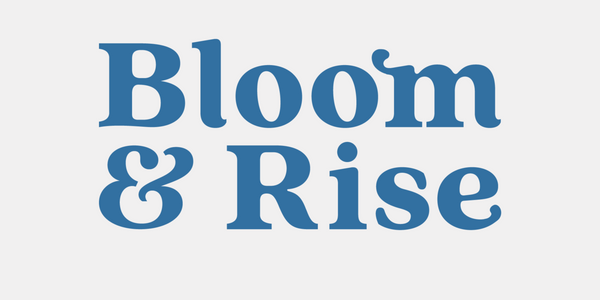Embracing Parenthood
Resource 1: Blues to Blooms: Navigating the Baby Blues
Resource 2: Recognizing and Supporting Mental Wellness During the Perinatal Period
Resource 3: Quick Facts & Resources
Collapsible content
What are the baby blues?
Baby Blues is characterized by mild mood swings, sadness, irritability, and anxiety. Typically, the Baby Blues occur within the first 2 weeks after childbirth, peaking around days 3-5 post-delivery. 60-80% of women will experience baby blues as a result of changes in hormones and significantly disrupted sleep. Partners can experience baby blues too!
How can I manage the baby blues?
- Sleep is vital! Finding time to grab a few more Z’s can significantly help!
- While you're in the process of recovering from birth, incorporating activities that promote healing and movement (as advised by your doctor) can contribute to reducing the postpartum blues.
- Don't hesitate to seek support from others! Explore our postpartum planning resource, which can guide you in considering various ways others can lend their support during this important time. Remember, you don't have to navigate this journey alone—support from loved ones can make a world of difference.
What if I suspect I might have more than the baby blues?
If symptoms are not resolving or if there is a significant alteration in mood, it's crucial to consult with your PCP or OBGYN. Postpartum mood disorders are not uncommon, affecting approximately 1 in 7 women and 1 in 10 men.
For more detailed information and resources on postpartum mood disorders, please refer to our dedicated resource on the subject. It provides valuable insights and guidance to help you navigate this aspect of the postpartum experience. Your well-being is of utmost importance, and seeking professional support can make a meaningful difference.
What is a Postpartum Mood and Anxiety Disorder (PMAD)?
A postpartum mood disorder is a mental health condition that affects individuals, typically mothers, after childbirth. Common types include postpartum depression (intense sadness and hopelessness), postpartum anxiety (excessive worry), postpartum obsessive-compulsive disorder (intrusive thoughts and repetitive behaviors), postpartum post-traumatic stress disorder (resulting from a traumatic childbirth), and postpartum psychosis (loss of touch with reality). These disorders require timely professional support and can impact the well-being of both mothers and families. Treatment may involve therapy, medication, and lifestyle changes. If symptoms arise, consulting a healthcare professional is crucial.
What are signs of PMADs?
Postpartum Depression (PPD): This is a more severe and persistent form of the "baby blues," which is a common, mild mood disturbance that many women experience after childbirth. PPD involves intense feelings of sadness, hopelessness, and worthlessness that can interfere with your ability to care for yourself or your baby.
Postpartum Anxiety (PPA): People with postpartum anxiety may experience excessive worry, restlessness, and nervousness. This can manifest as constant fears about the baby's health and well-being, obsessive thoughts, and physical symptoms such as trembling or nausea.Item description
Who can experience PMADs?
It's essential to note that postpartum mood disorders can affect fathers and partners as well, though they are more commonly associated with mothers. These disorders can have a significant impact on the family unit, and seeking timely and appropriate mental health support is crucial for recovery.
What should I do if I suspect I have PMADs?
If you're experiencing postpartum mood disorder, remember you're not alone. Prioritize self-care, talk to your OB/GYN, and seek mental health care, including therapy and medication if needed. Postpartum Support International is a great resource for finding a clinician in your area. In a crisis or if you can't ensure your safety, call 911, go to the emergency room, or reach out to local crisis support services.
What are some strategies for managing PMADs?
On top of seeking professional help, it is important to care for yourself. Remember that self-care is not selfish but essential for your well-being and the well-being of your family.
To care for yourself try to:
- Prioritize sleep (the number one strategy for combatting PMADs)
- Remember to stay hydrated and eat nourishing foods
- When allowed by your doctor, engage in gentle exercises to release positive endorphins.
- Connect with friends, family, or support groups. Share your feelings and experiences with others who may have gone through similar challenges. Don't hesitate to ask for help and delegate tasks.
- Allocate time for activities you enjoy, whether it's reading, taking a bath, or pursuing a hobby. Me-time is crucial for mental well-being.
- Adjust your expectations and don't pressure yourself to be a perfect parent. Accept that it's okay to ask for help and that nobody has it all figured out.
